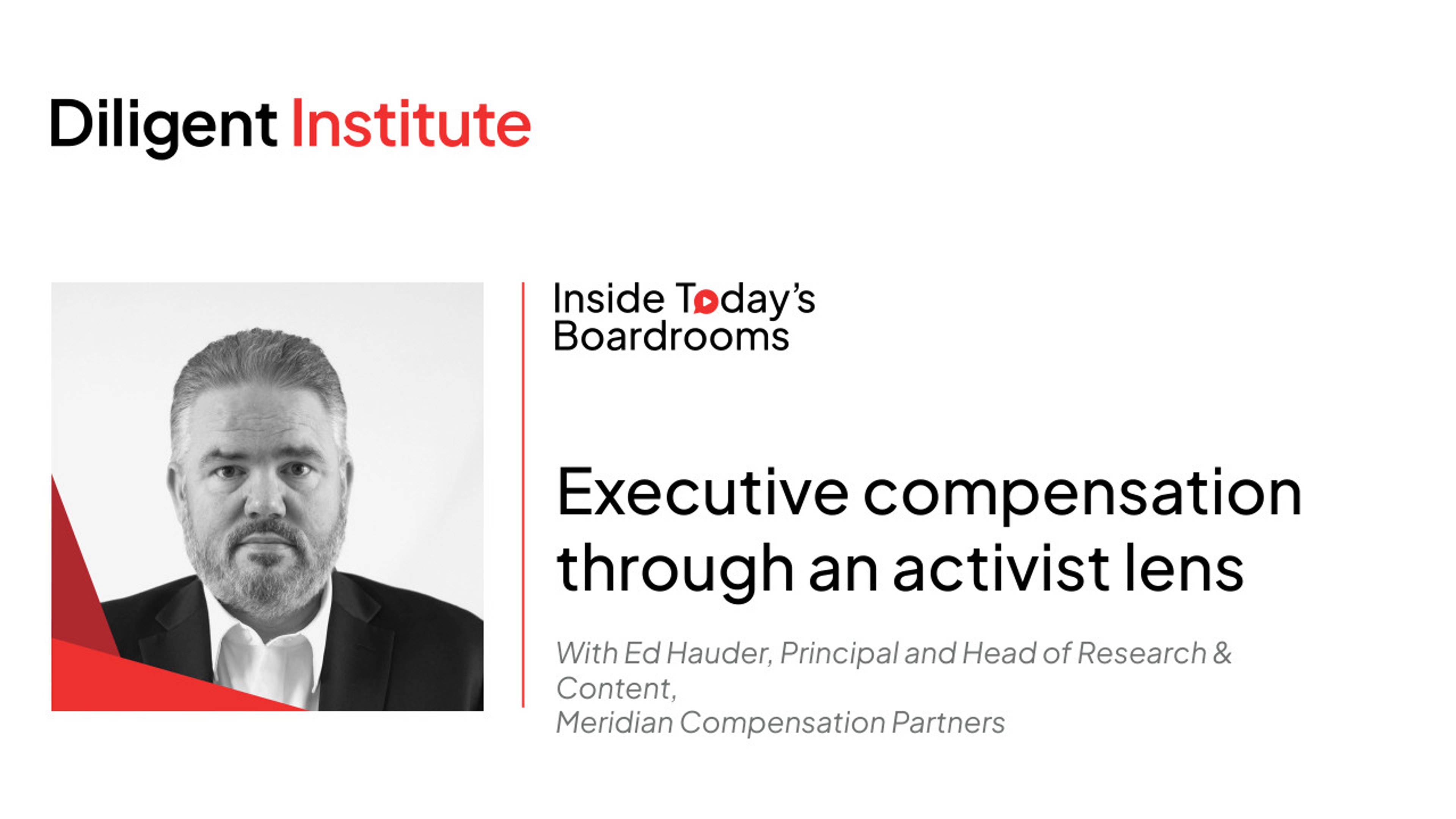The Latest in Executive Compensation Trends: Insights from the NextGen Board Leaders East Coast Summit

The NextGen Board Leaders program, sponsored by Wilson Sonsini and Meridian Compensation Partners, brings together experts and new public company board members under Chatham House Rule to discuss critical topics in corporate governance.
At a recent Summit, held at the New York Stock Exchange (NYSE), leading experts shared timely insights on the rapidly evolving landscape of executive compensation. Several critical themes emerged that are shaping boardroom conversations and governance practices today.
Key priorities for boards
Boards are sharpening their focus on the structure and competitiveness of executive compensation, especially CEO pay. The goal: ensuring that compensation both attracts and retains top talent while maintaining a clear alignment with the company’s long-term strategy.
Executive transitions have also gained renewed importance, with robust succession planning and carefully structured separation packages rising to the top of committee agendas. These priorities reflect a growing expectation—from investors and other stakeholders alike—for transparent links between pay and performance.
A more complex compensation environment
The executive compensation environment is more complicated than ever—particularly for companies outside the S&P 500, including those in the Russell 3000 or recently public companies still maturing their governance frameworks.
The U.S. Securities and Exchange Commission’s (SEC) pay versus performance disclosure rules require companies to explain in detail how executive compensation ties to both financial and non-financial results. This has increased the demand for greater rigor in plan design and heightened pressure to clearly articulate the rationale behind every element of pay.
The widening gap between U.S. and international compensation practices shows little sign of narrowing. Meanwhile, periods of economic uncertainty caused by market volatility, global events like COVID, or shifting trade conditions, continue to complicate the selection and calibration of performance metrics and targets for leadership.
Boards must strike a balance: maintaining credibility with executives while guarding against potential corporate waste claims. Practical strategies include:
- Maintaining consistency in financial metrics: Avoid shifting targets unless clearly warranted by changes in business conditions.
- Scoping discretion tightly: Where discretion is needed, plan documents should include specific language for “extraordinary events” (e.g., leadership effectiveness during crises), paired with clear documentation of rationale.
- Using relative performance metrics where appropriate: Comparing performance to peers, rather than absolute targets, can help isolate executive performance from broader market disruption.
Evolving investor expectations
While 'say-on-pay' voting outcomes remain largely steady, with low failure rates, scrutiny continues. Boards face ongoing pressure around:
- Large, one-time equity awards
- Use of discretion in pay decisions
- Responsiveness to prior shareholder concerns
Transparency and discipline remain essential.
Best practices in compensation governance
Excellence in compensation governance hinges on strong processes. Boards are encouraged to maintain clear annual calendars for their compensation committees, ensuring all decisions align with committee charters and mandates.
This proactive approach enables early engagement with investors and proxy advisors, particularly on potentially controversial changes, helping to mitigate concerns before they become significant issues.
As the executive compensation landscape continues to evolve, boards that prioritize clarity, disciplined processes, and stakeholder engagement will be best positioned to navigate future challenges.

Executive Compensation in 2024
Definitive quantitative analysis of executive compensation, with data compiled, analyzed and published by Diligent Market Intelligence.

CEO safety and the role of the board
Mike Meyer, Principal at Meridian Compensation Partners discusses the growing importance of CEO security.

Executive compensation through an activist lens
Ed Hauder, Principal and Head of Research & Content at Meridian Compensation Partners, discusses best practices for viewing your executive compensation package through an activist lens.